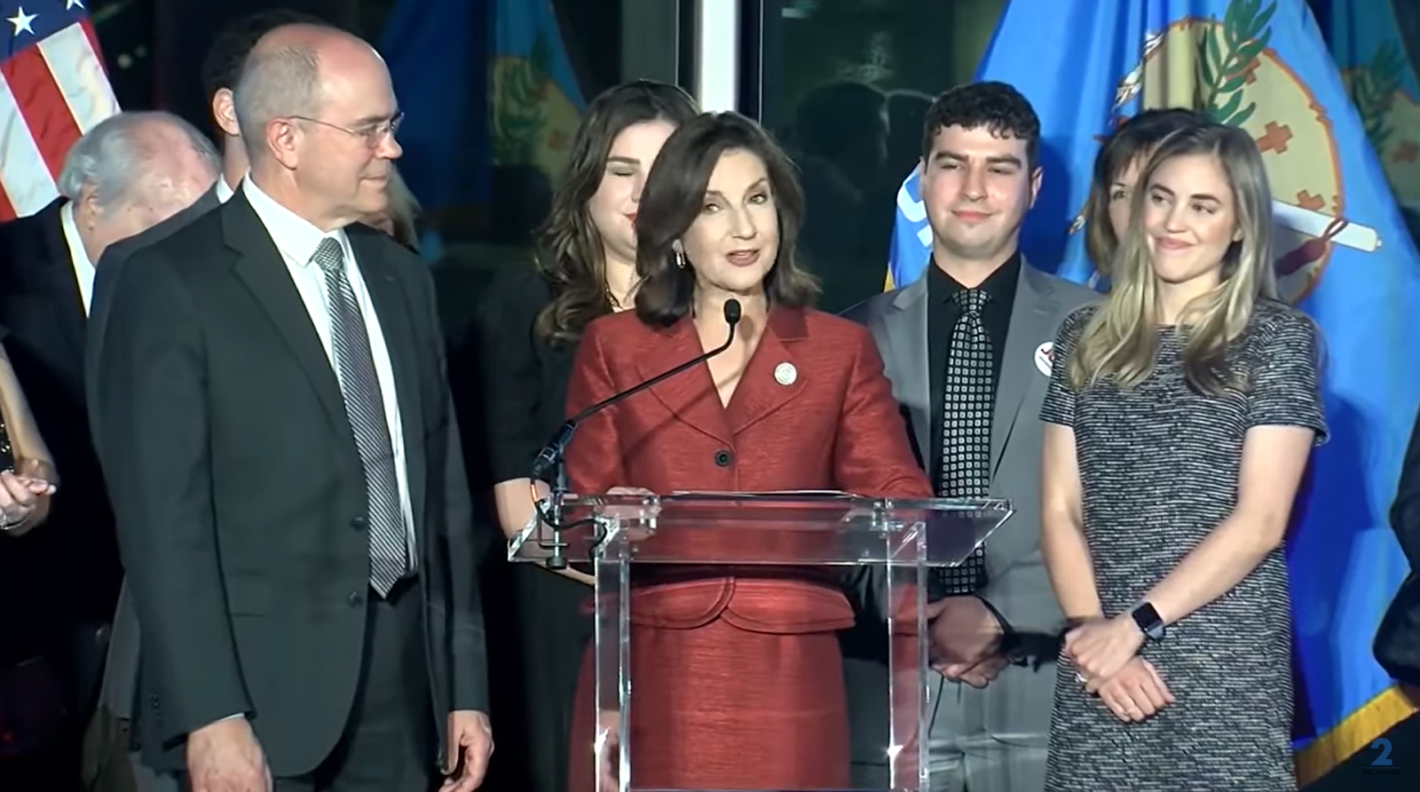Perspectives on Politics: Joy Hofmeister’s Standpoints

Joy Hofmeister, a prominent figure in Oklahoma politics, has garnered attention for her positions and actions as they relate to various political issues. As the State Superintendent of Public Instruction for Oklahoma, Hofmeister’s views have played a significant role in shaping the educational landscape of the state. This article aims to provide a comprehensive analysis of Joy Hofmeister’s political views, touching upon her stances on education, healthcare, economic policies, social issues, and more.
Education: A Cornerstone of Hofmeister’s Agenda
One of the central aspects of Joy Hofmeister’s political identity is her commitment to education. Serving as the State Superintendent of Public Instruction since 2015, Hofmeister has championed several educational reforms. She has consistently advocated for increased funding for public schools, aiming to enhance the quality of education for students across the state. Hofmeister believes that investing in education is essential for the future prosperity of Oklahoma.
Furthermore, she has expressed support for comprehensive early childhood education programs, seeing them as a way to ensure that children receive a strong foundation for their future academic pursuits. Hofmeister’s emphasis on personalized learning and teacher development has resonated with many educators and parents alike.
Healthcare and Social Welfare
Joy Hofmeister’s political views extend to the realm of healthcare and social welfare, reflecting a more moderate stance. Although not a primary figure in healthcare policy debates, her perspectives hold significance in shaping the state’s approach to these crucial issues. Hofmeister’s advocacy revolves around measures aimed at enhancing access to quality healthcare, with a particular emphasis on children’s well-being.
Hofmeister’s approach to healthcare policy is marked by a commitment to improving access to medical services. While education remains her focal point, she recognizes the inherent connection between health and educational outcomes. Her advocacy for measures aimed at addressing child poverty aligns with this vision, underlining her belief in the profound impact of a healthy and well-supported childhood on overall development.
In her capacity as the State Superintendent of Public Instruction, Hofmeister has amplified the importance of comprehensive support systems that encompass both education and health. Her moderate stance on healthcare reflects a nuanced understanding of the complex interplay between social factors and academic achievement. While her influence on healthcare policy debates might not be central, her advocacy for accessible and quality healthcare serves as a testament to her holistic approach to fostering a better future for Oklahoma’s children.
Hofmeister’s dedication to addressing child poverty through healthcare initiatives echoes her broader commitment to equity and social welfare. By supporting measures that prioritize children’s health, she contributes to a foundation upon which educational success can be built. Her emphasis on health and welfare within the broader context of her political views underscores the interconnectedness of policies that ultimately shape Oklahoma’s socio-economic landscape.
Economic Policies and Fiscal Responsibility
Joy Hofmeister’s political philosophy extends to the realm of economic policies and fiscal responsibility, demonstrating a pragmatic and balanced approach that aligns with the needs of Oklahoma’s citizens. Her views underscore the intricate interplay between managing the state’s financial resources and prioritizing education, which she considers a cornerstone for the state’s progress.
Hofmeister’s economic stance centers on the importance of maintaining a balanced state budget. Her recognition of fiscal responsibility highlights her understanding of the need to manage resources wisely, ensuring that the state’s financial health remains stable. This stance, while pragmatic, doesn’t overshadow her commitment to investing in the future, particularly through education.
Key facets of Hofmeister’s economic views and fiscal approach:
- Balanced Budget Priority: Hofmeister’s emphasis on a balanced budget showcases her understanding of the significance of fiscal stability. She recognizes that responsible financial management sets the groundwork for sustainable growth and development;
- Smart Budgeting for Education: Throughout her tenure, Hofmeister has advocated for intelligent budget allocation that prioritizes education. Her belief in the transformative power of education drives her determination to ensure adequate funding for schools and educational programs;
- Holistic Economic Context: Hofmeister’s approach acknowledges the broader economic landscape of the state. Her views take into account the economic conditions, challenges, and opportunities that impact Oklahoma’s financial decisions;
- Resource Management for Citizen Benefit: Hofmeister’s economic philosophy ultimately seeks to ensure that the state’s financial resources are effectively utilized to benefit its citizens. Her focus on education aligns with her belief that investing in human capital yields substantial long-term returns.
Social Issues and Cultural Perspectives

While Hofmeister’s primary focus has been on education and related policies, some aspects of her social and cultural perspectives have surfaced during her time in office. She has supported initiatives promoting diversity and inclusivity in schools, emphasizing the importance of creating safe and welcoming environments for all students. Her stance on social issues suggests a belief in the value of embracing differences and fostering a sense of unity.
Criminal Justice and Rehabilitation
Joy Hofmeister’s perspective on criminal justice encompasses a wider movement towards comprehensive criminal justice reform. Aligned with this broader trend, she actively advocates for innovative programs that seek to facilitate education and vocational training within the confines of incarceration. Hofmeister perceives these initiatives as vital avenues for the rehabilitation of incarcerated individuals, aimed at not only reducing recidivism rates but also fostering a sense of self-worth and purpose.
Her stance reflects a profound belief in second chances and the transformative potential within each individual, even within the framework of the criminal justice system. By championing educational and vocational opportunities for those within the system, Hofmeister underscores the importance of breaking the cycle of crime by addressing its root causes and providing avenues for meaningful personal growth.
Environmental and Energy Policies
While education forms the core of Joy Hofmeister’s political agenda, her stance on environmental and energy policies emerges as a secondary yet inherent component of her vision. Despite limited direct involvement due to her role as the State Superintendent of Public Instruction, her commitment to a well-rounded education provides an indirect insight into her views on environmental concerns.
Hofmeister’s emphasis on equipping students with the knowledge and skills to navigate complex issues naturally extends to matters of environmental sustainability. A well-rounded education encompasses an awareness of environmental challenges and solutions, aligning with the broader need for informed citizens who can contribute positively to addressing environmental issues.
Though not central to her platform, Joy Hofmeister’s support for comprehensive education implicitly implies her recognition of the importance of preparing future generations to grapple with multifaceted challenges, including those related to the environment and energy. While education remains her primary focus, her underlying commitment to informed and capable citizens suggests an alignment with principles of environmental awareness and responsible energy use.
Bipartisanship and Collaboration
Joy Hofmeister’s political journey has been marked by a consistent demonstration of her willingness to transcend the boundaries of party lines. Her commitment to bipartisanship and her penchant for collaborating with individuals hailing from diverse political backgrounds underscore her overarching dedication to the welfare of her constituents. This approach, defined by a strong emphasis on collaboration, epitomizes her belief in the power of shared efforts to achieve tangible and meaningful policy outcomes.
| Aspects of Collaboration | Description |
|---|---|
| Cross-Party Cooperation | Hofmeister’s track record demonstrates her ability to bridge ideological divides. Her proactive outreach across party lines speaks to her conviction that progress often emerges from consensus. |
| Common Ground Pursuit | Hofmeister’s collaborative approach is driven by her unwavering belief in the potential of finding common ground. She champions the idea that constructive dialogue and cooperation lay the foundation for successful policy-making. |
| Respect and Rapport | Her collaborative demeanor has earned her the respect of colleagues across the political spectrum. The rapport she has built fosters an environment where differences are acknowledged but not insurmountable obstacles. |
| Effectiveness as a Leader | This collaborative ethos has contributed significantly to Hofmeister’s effectiveness in her role as the State Superintendent of Public Instruction. Her willingness to reach across divides enhances her capacity to effect positive change. |
By championing collaboration and bipartisanship, Joy Hofmeister upholds the notion that collective efforts yield greater results than partisan divides. Her approach not only underscores her commitment to effective governance but also serves as a model for fostering unity amidst diversity in the realm of politics.

Collaborative Values in Action:
- Bridging ideological divides for consensus-based solutions;
- Prioritizing constructive dialogue as a catalyst for progress;
- Building a respectful and inclusive environment for diverse perspectives;
- Elevating effectiveness and positive change through cross-party cooperation.
Conclusion
Joy Hofmeister’s political views are multifaceted and reflect a commitment to education, pragmatic economic policies, and a desire to create a more inclusive and equitable society. Her tenure as the State Superintendent of Public Instruction has allowed her to focus primarily on education-related issues, where she has consistently advocated for improved funding, teacher development, and personalized learning. While her involvement in other policy areas has been relatively limited, her collaborative approach and emphasis on practical solutions have garnered her a reputation as a thoughtful and effective leader in Oklahoma politics.


